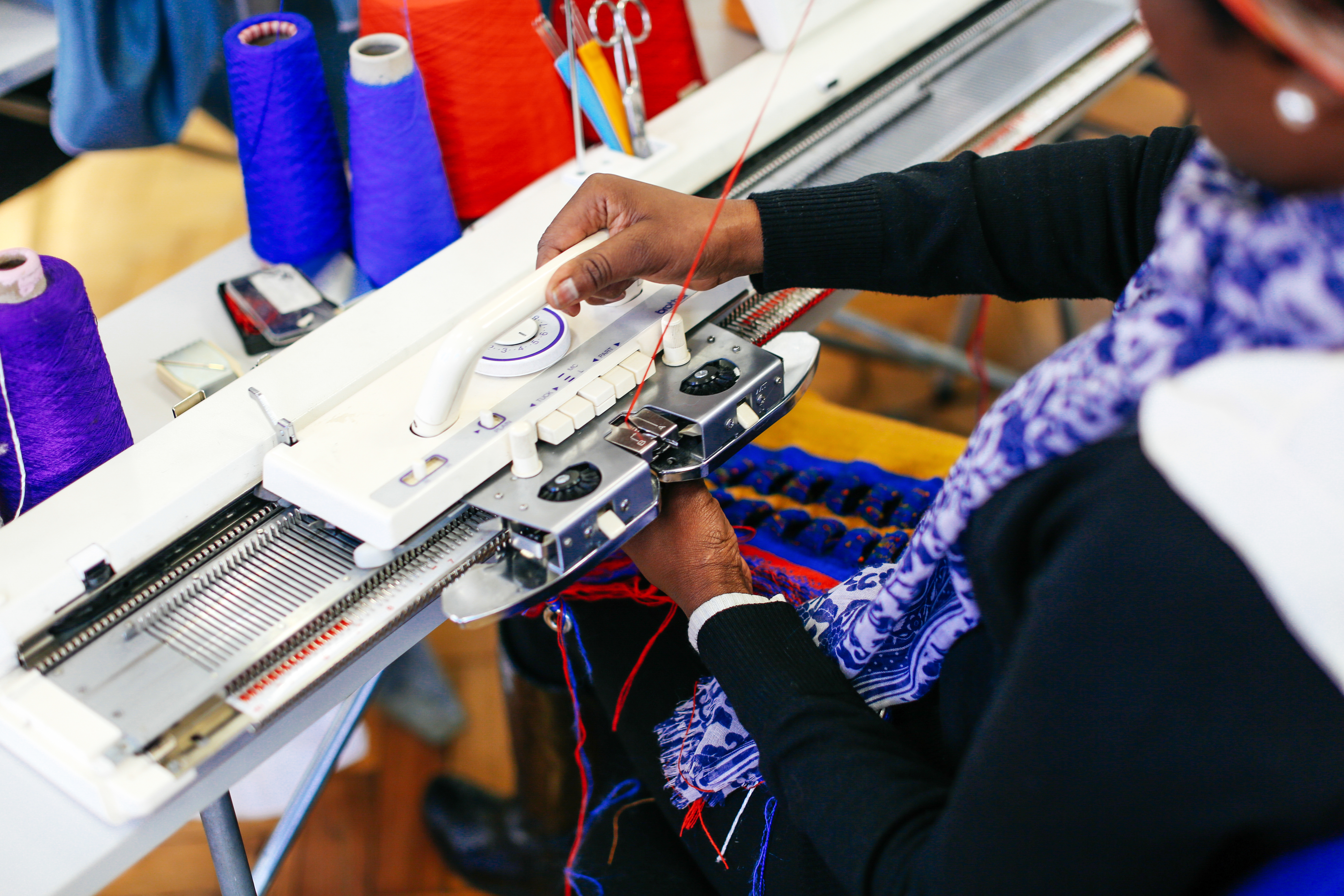A twist of events — or perhaps it was fate — made Molshree Vaid take a more conscious approach towards fashion. In 2016 she decided to fly all the way from India and start a new chapter of her life in London, studying the MA Fashion Futures at LCF. We sat down with her to hear more about her personal journey into sustainable fashion, her experience at LCF as a mature postgrad student and how she's using her expertise in communications to drive positive change in the industry.
Molshree started off her career as a business journalist, covering stories on the expansion of retail in India and how consumers were responding to it. During her time as a reporter, she met a fashion designer through an interview who was starting his store footprint, and that’s when she decided to jump into the fashion industry as a marketing specialist: “I didn’t have any background or a formal degree in fashion, but I grabbed the opportunity because I loved fashion. For me, it’s a unique product category that blends form, function and emotion.”
After spending many years working and seeing all the different faces of the industry, she started noticing there was something unsettling about it and frustration seeped in. That’s when her “awakening process,” as she describes it, began: “In a span of one day, I would watch models sashay down the ramp at a hotel in Mumbai and also read a news report about the other end of the spectrum: 60% female workers reporting physical or sexual abuse in Bangalore’s garment factories."
As another woman in fashion, I kept wondering: "What role am I playing in the industry and how can I be part of the solution?"
The documentary film The True Cost was the final piece of the puzzle that made her become an advocate for sustainable fashion: “When I watched this movie, it all came together. From that moment I knew exactly what I needed to do and who I wanted to become. Right after finishing it I was typing in Google “courses in sustainable fashion” — that’s how I came across the MA Fashion Futures course at LCF.”
Just in a matter of a few months, Molshree quit her job, sorted her visa and moved to London to start a new phase in her career with a very clear direction: raising awareness about the sustainable future of fashion. But why did she decide to make this new move at LCF?
Sustainability is a really hot topic right now, but back in 2016 it was just starting to get noticed, with a few articles here and there. I read about the Centre for Sustainable Fashion at LCF and that’s when I knew that this college was on top of the conversation, and I wanted to be a part of it.
Moving across to the other side of the world wasn’t the only challenge for Molshree. Going back to academia after years of working in the industry was also a big step forward for her, as she tells: “Initially, it was a bit hard to forego the highs of financial independence. Also, I felt a bit overwhelmed in the presence of designers and students with a strong fashion background in my class. But soon enough, I figured my rhythm and started savouring the joys of being at a fashion school in London!”
Molshree mentions that having a very diverse group in the classroom made the experience of studying at LCF truly enriching: “My cohort had people from more than 10 countries, which allowed us to have deep and interesting conversations with so many different viewpoints. Everyone was bringing their own knowledge and expertise to the table… the chats would spillover from the classroom to late-night discussions.” She also highlights that having direct connections with the industry made the MA even more special:
We literally had the best people coming in for lectures, from sustainability authors to entrepreneurs and thought leaders. I still remember the guest lecture with Orsola de Castro from Fashion Revolution — as she spoke about the horrors of the denim sandblasting process, I squirmed in my distressed Diesel jeans.
She also remembers how lecturers didn’t shy away from anything, inviting students find out more about the realities of the fashion industry, even if it meant raising uncomfortable questions: “We discussed topics that were a bit unsettling, like the environmental impact of the production of garments or consumer behaviours, which got us a bit emotional most of the time. Having all these heated debates made us feel like a bunch of fashion revolutionaries, but with a constructive agenda.”
Molshree acknowledges that the MA Fashion Futures course thrives on its abstract non-prescriptive approach, so each student can make what they want out of it. In her case, she says it helped her to expand her thinking, setting her on a personal journey of reflection and discovery that is still ongoing. Just like a fashion designer being more mindful about the sourcing of materials, Molshree’s is now using her expertise and background in communications as her weapon to drive change in the industry:
I’m using the power of words to tell stories, mainly spotlighting good work. I know there exists a negative perception due to the industry’s malpractices, but I’m more focused on a more optimistic point of view, consciously looking out for the bright spots. I want to help mainstreaming the conversation through positive messages.
- Follow Molshree on Twitter and check some of her articles on LinkedIn
- Find out more about MA Fashion Futures
- Explore LCF postgraduate courses
- More LCF Stories
Alumni can connect with LCF in the following ways:
- Stay in touch
- LCF Alumni Network on LinkedIn
- Contact LCF Alumni on: alumni@fashion.arts.ac.uk



